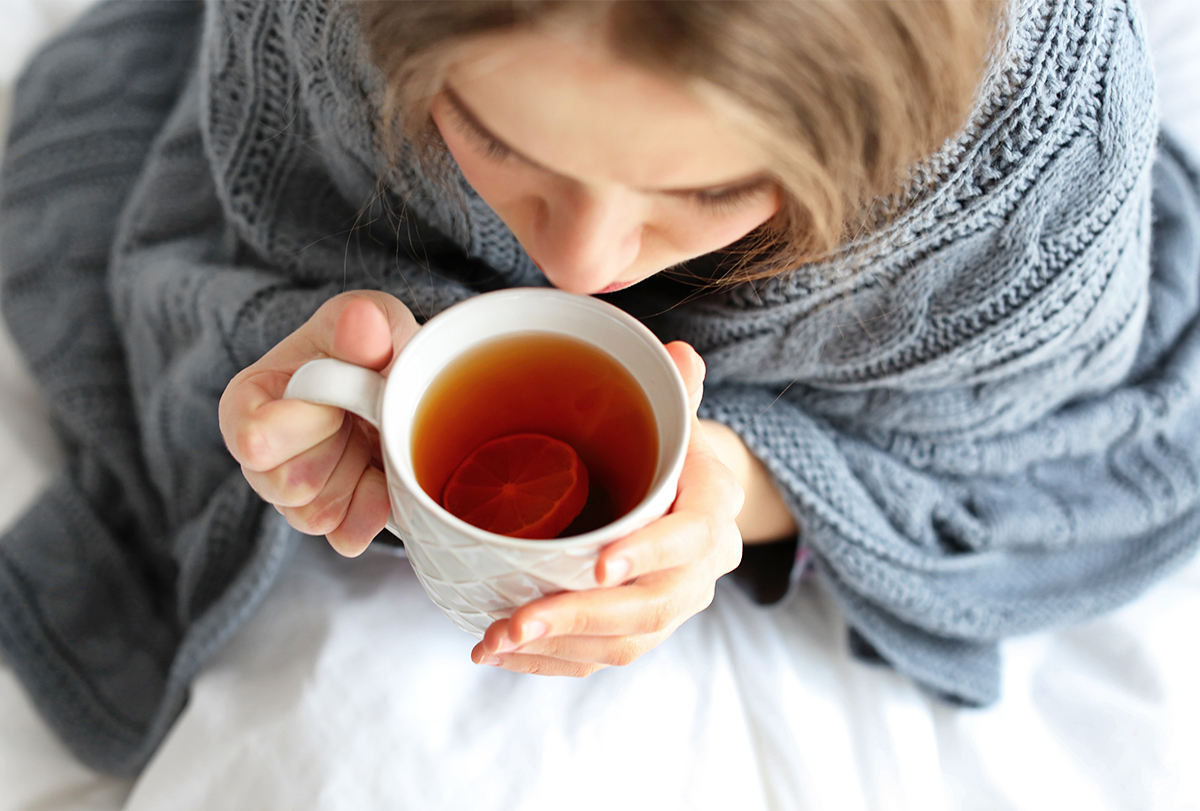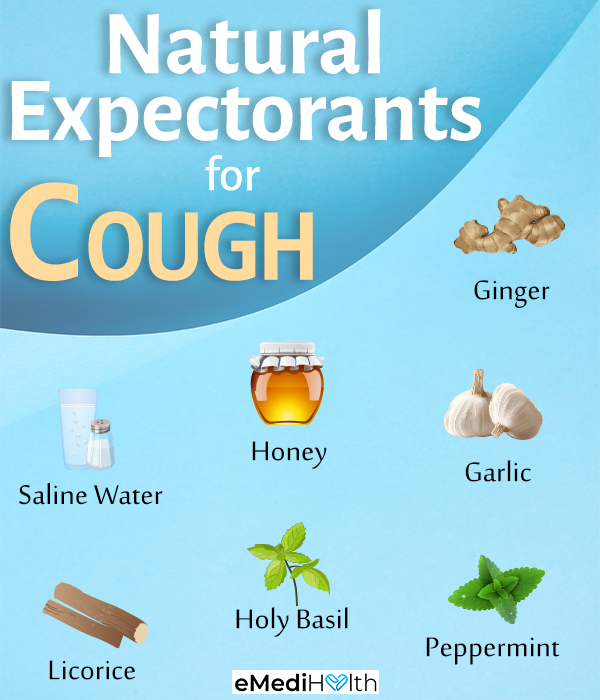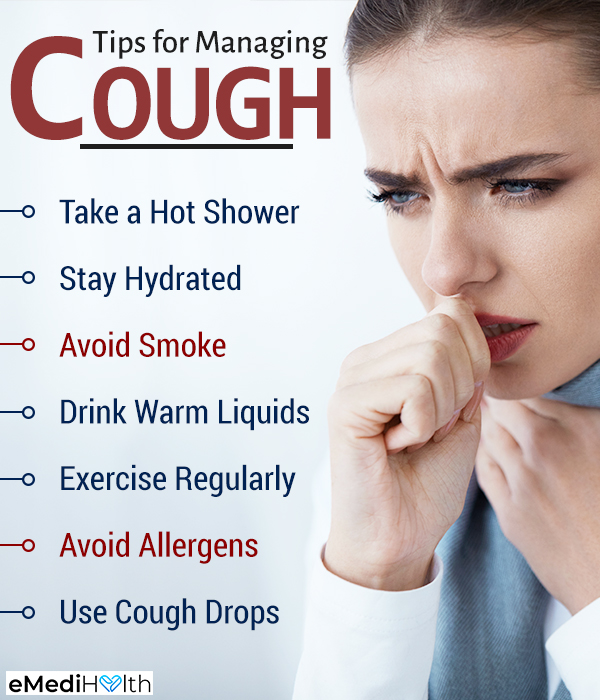In this article:
Coughing is a reflexive response of the body to an irritation in the throat or airways. Irritants such as mucus and foreign bodies (dust and food particles) need to be cleared from the respiratory tract.

Clearing of the throat and airways is facilitated by coughing. Therefore, like blinking or sneezing, coughing helps in protecting the body.
A persistent cough could be a symptom of a severe medical complication. It is advised to seek medical help to determine the underlying cause and get treatment.
Natural Expectorants That May Help Relieve a Cough
A cough can be treated using cough syrups or expectorants that are available over the counter. Expectorants are essentially substances that help get rid of a cough by clearing the airways of phlegm or mucus.
However, at times, expectorants do not produce the desired results. These drugs can be substituted by natural expectorants that are commonly present in your kitchen.

Note: The following home remedies can help to alleviate coughs naturally, but they may not treat the underlying infection.
1. Saline water
Salt water works by relieving throat irritation and reducing inflammation in the airways. Gargling or rinsing your mouth with saline water helps loosen the mucus or phlegm, enabling its easy expulsion when coughing. (1)(2)
Salt water acts as a trigger for coughing, which in turn helps you expel the mucus.
How to use:
- Dissolve 1 teaspoon of salt in 1 cup of lukewarm water.
- Gargle with this salt water solution two to three times a day to obtain effective results.
2. Honey
Honey is rich in antioxidants. The immune-boosting power of honey, along with its antibacterial action, offers quick relief by alleviating cough and its associated symptoms.
The use of honey to treat cough in children was supported by a study published in the Canadian Family Physician in 2014. To reduce coughing, consumption of 2.5 ml of honey before sleeping is recommended for children older than 1 year, according to this study. (3)
A number of other studies support the use of honey as an expectorant. (4)(5)
How to use:
- Mix 1 tablespoon of raw honey in a glass of tepid water.
- Consume this mixture multiple times daily to soothe your throat.
Caution: Honey may contain bacteria that can cause infantile botulism. Therefore, children below 1 year of age should not be given honey. (6)
3. Ginger
Ginger, a common ingredient in most kitchens, is loaded with anti-inflammatory and antitussive (cough suppressant) properties that help relieve a cough. Ginger can also enhance the immune system and, thus, aid in a quick recovery. (7)
An animal study conducted in 2015 showed that ginger could prevent a cough induced by citric acid in guinea pigs. Polysaccharides extracted from ginger rhizomes were used for this purpose. (8)
The shogaols and gingerols in ginger are known to alleviate the symptoms of a cold. They act by suppressing the cough, reducing the body temperature, and giving a slight sedative effect. (9)
How to use:
- Prepare a decoction by boiling crushed pieces of ginger in a cup of water. Consume this drink three times a day.
- You can also prepare ginger tea.
Caution:
- Consuming ginger in medicinal amounts can upset your digestive system and trigger abdominal gas, heartburn, and nausea.
- Medicinal intake of ginger is known to have a blood-thinning effect and, therefore should not be used by people who are already taking anticoagulants.
- A concentrated dosage of ginger can lower your blood pressure. Thus, using ginger as an expectorant while you are on antihypertensive drugs can reduce your blood pressure to dangerously low levels by doubling up the effect.
4. Licorice
The root of licorice can provide relief from throat irritation. It can also alleviate a cough. Licorice has been widely used in traditional Chinese medicine. It is utilized to reduce pain, remove phlegm, and alleviate coughing. (10)(11)
How to use:
- Steep ½ teaspoon of licorice roots in 1 cup of boiling water for 10 minutes. Drink this tea twice or thrice a day.
- You can also consume licorice candies to reduce throat irritation.
Caution: People with high blood pressure should avoid the use of licorice.
5. Holy basil
Commonly known as tulsi, holy basil is found in many expectorants and cough syrups. Holy basil has been extensively used for the treatment of coughs induced by asthma and allergic bronchitis. (12) It also helps thin phlegm so it can be easily expelled out of the lungs.
Oils obtained from the inflorescence and leaves of holy basil can help in relieving asthma and cough. (13) However, direct studies to further confirm the use of holy basil as an expectorant are required.
How to use:
- Boil 8–10 leaves of holy basil along with 5 cloves in 1 cup of water for 10 minutes. Cool the solution and consume it thrice a day.
- Alternatively, add a few drops of holy basil oil to boiling water. Inhale the steam once or twice a day.
Caution:
- Animal studies showed that the oral administration of holy basil can be harmful during pregnancy. Although there aren’t any human trials to corroborate these findings, pregnant women are advised to err on the side of caution and avoid using this remedy as an expectorant.
- Medicinal intake of holy basil is also known to lower blood sugar and thyroxine levels, which is why it is not considered safe for people with diabetes and hypothyroidism, respectively.
6. Garlic
Garlic can help in treating respiratory problems and alleviating coughs. It acts as an expectorant. (14)(15) Garlic may be helpful in dealing with respiratory problems. However, better-quality large-scale studies are needed to establish its efficacy as an expectorant.
How to use:
- Use garlic for steam inhalation.
- For internal consumption, mix crushed garlic and honey. Take this mixture two or three times a day.
Caution: Medicinal intake of garlic is to be avoided if you are on blood-thinning medications.
7. Peppermint
Peppermint may improve lung function. (16) Menthol is the chief compound in peppermint that may be responsible for its benefits.
Oils extracted from peppermint help alleviate coughs and reduce the symptoms of throat infection, bronchitis, asthma, and sinusitis. Peppermint oil was also found to be antimicrobial and antispasmodic. (17)
No studies have directly shown the use of peppermint in reducing coughs. Hence, more research needs to be conducted to validate its medicinal properties. However, peppermint may be used to provide some relief from cough symptoms.
How to use:
- Use hot water with a drop of peppermint oil for steam inhalation.
- For internal consumption, drink peppermint tea.
Caution:
- Peppermint intake can sometimes induce heartburn and/or vomiting.
- Also, it can be toxic for children and pregnant women when used in aromatherapy.
Preventive Self-Care Measures to Ease a Cough

Here are some tips that can help alleviate a cough:
- Breathe in moisture-rich air by taking a warm, steamy shower.
- The use of internal heating or cooling systems can suck the moisture out of your living environment. The same is true for people who live in naturally arid terrains. In such cases, you can impart moisture to your room air by installing a humidifier. Make sure to clean it regularly to prevent the growth of mold.
- Consume adequate amounts of fluids. Staying hydrated helps to relieve your cough.
- Avoid exposure to lung irritants. Irritants such as tobacco smoke can trigger a cough. Sprays that contain aerosols such as deodorant, hairspray, and cleaning products can cause throat irritation, which can trigger a cough.
- Drink warm liquids. Consuming apple juice or lemon and honey may soothe your throat during a persistent cough.
- Exercise regularly. Light exercises help dilate the airways. Avoid heavy exercises as they may worsen the symptoms of a cough.
- Avoid allergens. Exposure to allergy-triggering substances can cause airway inflammation and induce a cough.
- Use cough drops. Cough drops can reduce throat irritation and can soothe your cough.
Most-Asked Questions About Alleviating a Cough
Does glycerol help in alleviating a cough?
Besides being used as a thickening agent or solvent in cough syrups, glycerol also improves the efficacy of these medications. It acts as a lubricant, humidifying agent, and sweetener. It also has anti-inflammatory properties.
One study revealed that a cough syrup containing only glycerol and flavoring agents such as honey or lemon is effective in treating acute cough. (18)
Is zinc useful in the treatment of coughs and colds?
Generally, colds are due to an infection by rhinoviruses. Respiratory viruses are present in large numbers in nasal secretions. These viruses spread by nose-blowing, coughing, or sneezing. (19)
The use of zinc sulfate to alleviate colds has been evaluated. Studies showed that using zinc sulfate within a day of onset of symptoms reduced the duration of colds. (20)
Do herbal cough syrups help in treating cough?
One study evaluated the effects of herbal cough syrup on cough symptoms. The cough syrup was prepared using a combination of thyme, marshmallow root, ivy leaves, and aniseed.
The study found that the herbal syrup was able to manage coughs developing from bronchitis, common cold, and respiratory infections. (21)
Final Word
Coughing is an involuntary protective reaction of the body against foreign materials. A cough can be due to many reasons and most coughs last only for a short time.
If the cough is chronic and is accompanied by other symptoms, it can indicate an underlying problem. It is recommended to seek help from a pulmonologist or ENT surgeon when a cough persists for too long. They will perform a thorough evaluation of your medical history to determine the reason behind your cough.
- Was this article helpful?
- YES, THANKS!NOT REALLY


